Our extra-large special edition is here. Subscribe today and receive the 25% longer issue at no extra cost!
The Top 10 Games Adapted From Books

The relationship between video games and books is an interesting one, both historically and in the context of artistic media. Each one has its strengths, but blending the two forms has been tricky for game designers.
Throughout the years, however, a handful of games have been adapted from literary characters and universes in outstanding fashion. Sometimes this means developing a pure-form remake, and other times it involves creating an entirely new interpretation. Either way, the best games adapted from books successfully capture the elements of the literary work that made it appealing in the first place. These are the top 10 games that do just that.
For the record: I have not included games that are more closely adapted from Hollywood films, like Electronic Arts’ Harry Potter and The Lord of the Rings titles.
Caution: There may be spoilers ahead.
10. Dune
PC
1992

Frank Herbert’s 1965 novel, Dune, is a pillar of modern science fiction. Its story is one of nobility, power, political scheming, psychological conflict, and the treacherous pursuit of spice on a desert world. Cryo Interactive molded Dune’s themes and characters into a computer game in 1992, assigning players the role of Paul Atreides and tasking them with driving the cunning House Harkonnen from the planet. Since the newly-arrived House Atreides has virtually no presence on the planet Arrakis (also known as “Dune”), the core objective of the game is to amass equipment and resources in a number of different categories – mining, finance, military, and ecology.
Dune II: The Building of a Dynasty, a game unrelated to Cryo Interactive’s Dune, was released by Westwood Studios in 1992. Although Dune II is less loyal to Frank Herbert’s plot, it went on to significantly influence the future of the RTS genre. Series like Command & Conquer, Age of Empires, and StarCraft all borrow heavily from Dune II’s strategy mechanics.
9. Sherlock Holmes: The Awakened
PC
2006
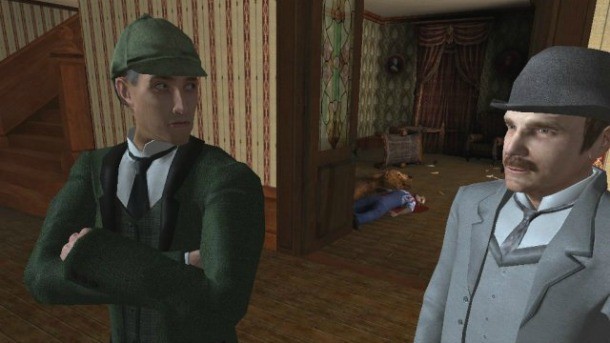
Classic literary characters rarely translate well to video games, but Frogwares has achieved enormous success with its Adventures of Sherlock Holmes series. Placing players in the boots of the uncannily observant detective, Sherlock Holmes, the half-dozen or so adventure games in this series brilliantly evoke Arthur Conan Doyle’s vision of late-Victorian London with all of the mystery, intrigue, and seedy characters that come with it. Players can also control Dr. Watson, Holmes’ loyal sidekick and biographer, as they search for evidence and solve both main and secondary puzzles.
Sherlock Holmes: The Awakened is the first entry in the series to have Holmes deal with supernatural elements, much like he did in Doyle’s The Hound of the Baskervilles, and stands as one of the strongest entries to Frogwares’ series. The Adventures of Sherlock Holmes is Doyle’s introductory collection of Sherlock Holmes stories, originally published in 1892.
8. Dynasty Warriors 3
Xbox; PlayStation 2
2002
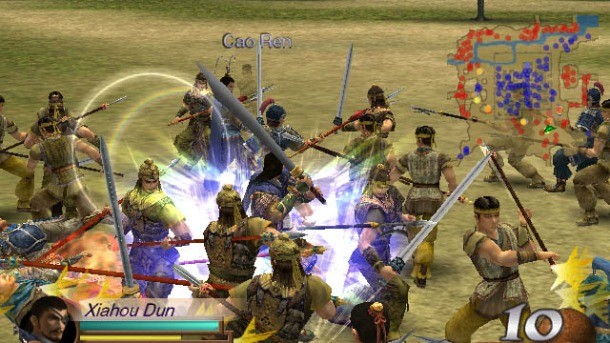
Japanese game studio Koei released Romance of the Three Kingdoms in 1985, a turn-based simulation title based on the Chinese historical novel of the same name. Romance of the Three Kingdoms (Chinese: Sanguo Yanyi) is attributed to 14th-century scribe Luo Guanzhong and is a dramatic rendering of the final years of China’s Han Dynasty. It is considered one of the four great classical novels of Chinese literature.
Koei went on to produce a spin-off series of Romance of the Three Kingdoms called Dynasty Warriors. Dynasty Warriors 3, one of the most widely-acclaimed entries to the series, came out in 2002, featuring several characters from Luo Guanzhong’s book, such as Guan Yu, Cao Cao, and Lü Bu. Like the novel, Dynasty Warriors 3 contains dozens of semi-fictional figures from China’s Han Dynasty era. The series is likely also influenced by Chen Shou’s Records of the Three Kingdoms (Chinese: Sanguozhi), an authoritative 3rd-century text on that period in China’s history.
Click to the next page for #'s 4-7.
7. American McGee’s Alice
PC
2000
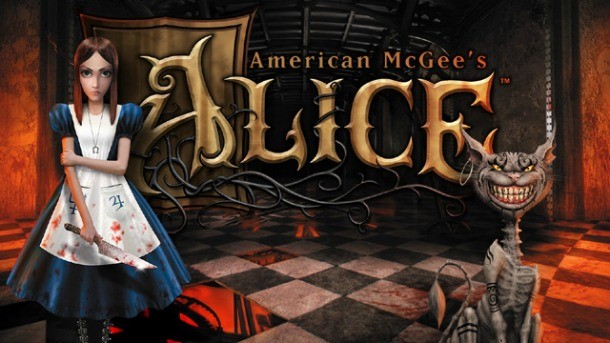
American McGee’s Alice is a dark and unofficial sequel to Lewis Carroll’s novels, Alice’s Adventures in Wonderland (1865) and Through the Looking-Glass, and What Alice Found There (1871). The game takes a much more cynical perspective on Alice’s life than Carroll does, but incorporates many recognizable characters like the Mad Hatter and the hookah-smoking Caterpillar. This game succeeds at both capturing the chaos and wonder of the original Alice tales and offering a unique take on Lewis Carroll’s imaginings. American McGee designed a sequel, Alice: Madness Returns, which came out for PS3, Xbox 360, and PC in 2011.
6. Parasite Eve
PlayStation
1998
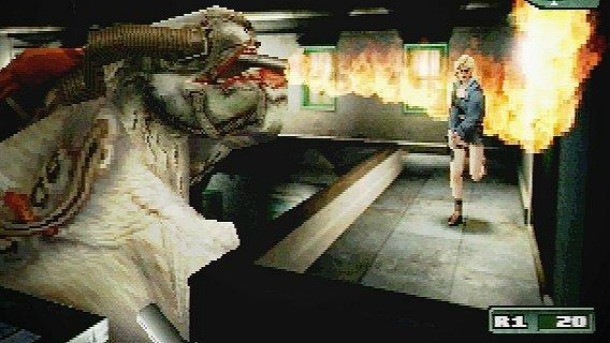
The relationship between Square’s Parasite Eve JRPG and Hideaki Sena’s Parasite Eve novel is simple – the game serves as a loose sequel to the book. The intricacies between the two plots, however, are not so simple. Sena’s novel, published in 1996 (Japan) and 2005 (North America), explores the idea that conscious beings can inhabit human mitochondria. Eve, one of these mitochondria-dwelling life forms, spends the duration of the book attempting to possess various characters so that her children will have the power to control their own genetic coding, or something along those lines. Parasite Eve, Square’s survival horror action RPG, takes place over six days in New York City and casts a more advanced Eve as the game’s primary antagonist.
5. Shadow Complex
Xbox Live Arcade
2009
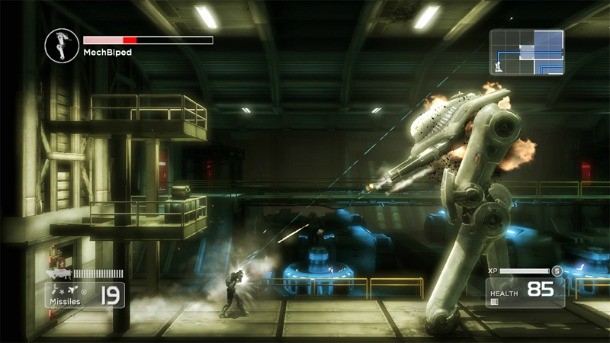
Chair Entertainment, the studio behind Shadow Complex and the profitable Infinity Blade series for iOS, licensed its Empire franchise to author Orson Scott Card in the mid-2000s. The deal led to Empire, a 2006 novel that tells the story of a second, modern American civil war between the left- and right-wing political parties. Orson Scott Card is best known for his 1985 military science fiction novel, Ender’s Game.
Empire was a critical success, and Card was signed on to write a sequel, Hidden Empire. To bridge the gap between the two books and expand the Empire universe, Chair began work on Shadow Complex, an XBLA exclusive that serves as a prequel to the first Empire novel. Although Jason Fleming and Claire were introduced in Shadow Complex, their story takes place in the Empire world and parallels the political backdrop of the literary series.
4. Metro 2033
PC; Xbox 360
2010
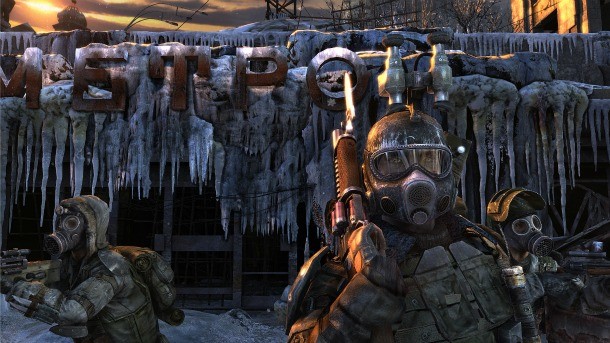
Russian author Dmitry Glukhovsky published Metro 2033 (Russian: Метро 2033) in 2005. The novel is set in a Moscow devastated by nuclear war and follows a young man named Artyom, one of thousands of starving citizens who have made their homes in underground metro stations. Ukrainian developer 4A Games picked up the rights to the story and released a video game of the same name in 2010, which capitalizes on the book’s action horror elements and beautifully captures the dark, fear-ridden world of metropolitan Moscow. Metro 2033 was published in the U.S. shortly after the game’s release.
The Metro 2033 game and book largely tell the same story, though the game does provide two possible endings. However, Glukhovsky has stated in an interview that Metro 2033 was originally an interactive online project that required narrative choices from readers. He published a sequel in 2009, Metro 2034, which does not share a plot with 4A Games’ sequel, Metro: Last Light.
Click to the final page for my top three games adapted from books.
3. Tom Clancy’s Rainbow Six
PC
1998
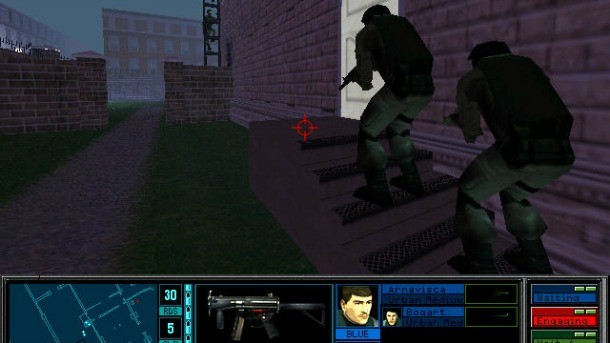
The Rainbow Six franchise was born from the mind of Tom Clancy. In 1996, the prolific American author founded Red Storm Entertainment with his business partner, Doug Littlejohns, who had been a submarine captain in the British navy. After pushing out a few relatively unsuccessful strategy games, Red Storm started development on a tactical shooter it tentatively called “Black Ops.” Well into the process, however, Clancy and Red Storm decided that the game’s story would parallel a novel that Clancy was writing at that time, Rainbow Six. The rest, as they say, is history.
Rainbow Six truly set a precedent for what tactical shooters would become in the years to come. With its emphasis on stealth, one-shot deaths, and pre-mission planning, it demonstrated to players the true meaning of realistic gaming, oftentimes frustratingly so. The game’s plot closely aligns with that of the novel, starring Domingo “Ding” Chavez and John Clark, a.k.a. “Rainbow Six,” the leader and sixth member of the England-based counter-terrorist organization, Rainbow.
2. Suikoden II
PlayStation
1999
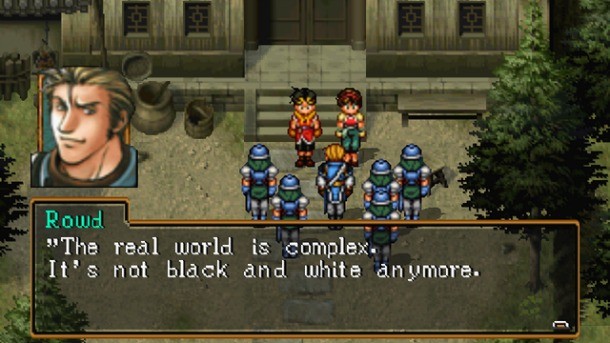
Like Dynasty Warriors, Konami’s Suikoden series is loosely adapted from one of the four great classical Chinese novels. This time the inspirational text is Water Margin (Chinese: Shui Hu Zhuan), a 14th-century novel traditionally attributed to Shi Nai'an. Water Margin tells the tale of 108 outlaws who gather on Mount Liang to form an anti-government militia.
Although Jowy Atreides, Nanami, and other Jowston inhabitants were created for the game, the events of Suikoden II strongly mirror the siege of the Zeng Family Fortress in Water Margin. Additionally, the concept of the 108 Stars of Destiny, one of the defining themes of the Suikoden series, serves as a primary plot device in Water Margin. Nearly all Suikoden games feature 108 recruitable characters, most of which are playable.
The Japanese term “suikoden” roughly translates to “water margin” in English.
1. The Witcher 2: Assassins of Kings
PC; Xbox 360
2011; 2012
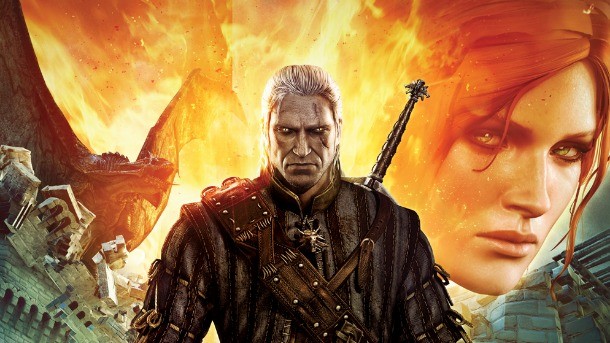
The Witcher saga took root in the 1980s, when Polish author Andrzej Sapkowski penned “The Witcher” (Polish: Wiedźmin), his first short story starring Geralt of Rivia. Several short stories and five novels later, Sapkowski’s narrative finally made its way to the video game world in 2007. The author doesn’t consider CD Projekt Red’s RPG series to be canon, but virtual Geralt is still the stoic, Sign-wielding, badass mutant beast hunter that he always has been.
2007’s The Witcher received mostly praise from video game critics, but it was The Witcher 2 that really put the franchise on the map outside of Poland. Assassins of Kings polished the best elements of The Witcher, like atmosphere and character development, and successfully introduced new ones, like additional weapon types and a more real-time approach to combat. Both games in the series, and likely The Witcher 3 when it comes out next year, turn staple RPG elements and traditional fantasy themes on their heads. Instead of drinking healing potions after a battle, players drink them beforehand as a form of planning. Rather than the wise, gentle-voiced elves we’ve come to expect, the Scoia'tael are tribal guerilla warriors. As fantastic as The Witcher series is, it’s a shame that Andrzej Sapkowski doesn’t play video games.
Unfortunately, only one collection of short stories (The Last Wish) and two novels from The Witcher saga (Blood of Elves and Times of Contempt) are currently available in English.
Sound off in the comments below. My feelings won't be hurt.

Get the Game Informer Print Edition!
Explore your favorite games in premium print format, delivered to your door.
- 10 issues per year
- Only $4.80 per issue
- Full digital magazine archive access
- Since 1991









